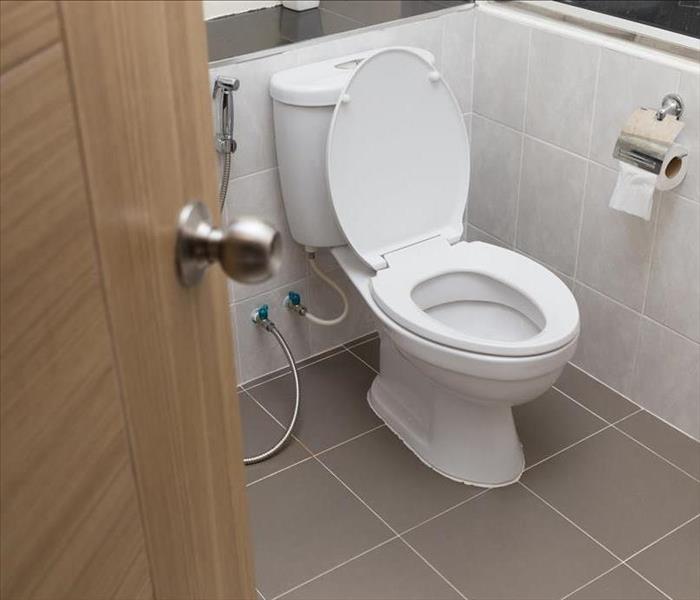How To Prevent Supply Line Leaks?
4/11/2022 (Permalink)
Supply lines are hoses that bring hot and cold water into your home. These lines are attached to appliances that utilize water, such as your washing machine and toilet. Supply line damage can lead to leaks or floods that can cause damage to your home. To avoid this, periodically change your supply lines.
Avoiding a Supply Line Leak
Sink drains and supply lines are the most common causes of a bathroom leak. There are steps you can take to avoid this problem.
1. Replace Supply Lines Periodically
Replace plastic supply lines every five to eight years. Steel braided lines often come with lifetime warranties, but if your braided lines have plastic cores, you may need to replace them every 10 years.
2. Make Sure Connections Are Secure
A loose hose connection can cause a leak. Periodically check connections to make sure they are still tight, particularly if you have noticed any water pooling or dripping around your supply lines. If you have any loose connections, use an adjustable wrench to tighten the nut. Do not overtighten. This could crack the nut. If you still have a leak, loosen the nuts and use plumber's tape or pipe joint compound to coat the ferrules or threads.
3. Drain Your Lines
If you have a leak at a connection and tightening doesn't help, shut off the water and drain the line. take the supply line off and use plumber's joint tape or a joint compound to wrap or coat the ferrule. Reattach your supply line and test it. If the leak persists, replace the supply line.
4. Install Shut-Off Valves
If your toilet doesn't already have a shut-off valve, install one. This allows you to quickly stop a leak caused by supply line damage by shutting off the water without having to shut the water off to the entire house.
5. Install Flow Sensors
Flow sensors can detect a leak in your plumbing and shut off the water for either the entire house or a specific appliance. This can prevent a large amount of water from leaking into your home before you notice there is a problem.
6. Don't Overfill Your Cabinet
Many people store cleaning supplies, towels and extra toilet paper under the bathroom sink. However, putting too many things under your sink can loosen the connections on your supply lines, leading to leaks.
7. Don't Put Off Repairs
Small leaks may not seem like a big deal, but over time the water can rot or warp your flooring, cause mold growth, cause tiles to peel up and may even attract insects. Fix leaks promptly. Dry out any wet surfaces completely. If you notice any musty odors, contact a mold remediation company in Rocky Mount, NC, to check for and remove mold.
8. Call a Plumber
Some problems can be fixed easily, but others may require more specialized skills. If you have tried to fix a leak and have not been successful, contact a plumber to take care of the problem.
Supply line damage can lead to leaks that can damage your home. Regularly maintaining your supply lines can help you avoid this type of damage.




 24/7 Emergency Service
24/7 Emergency Service
